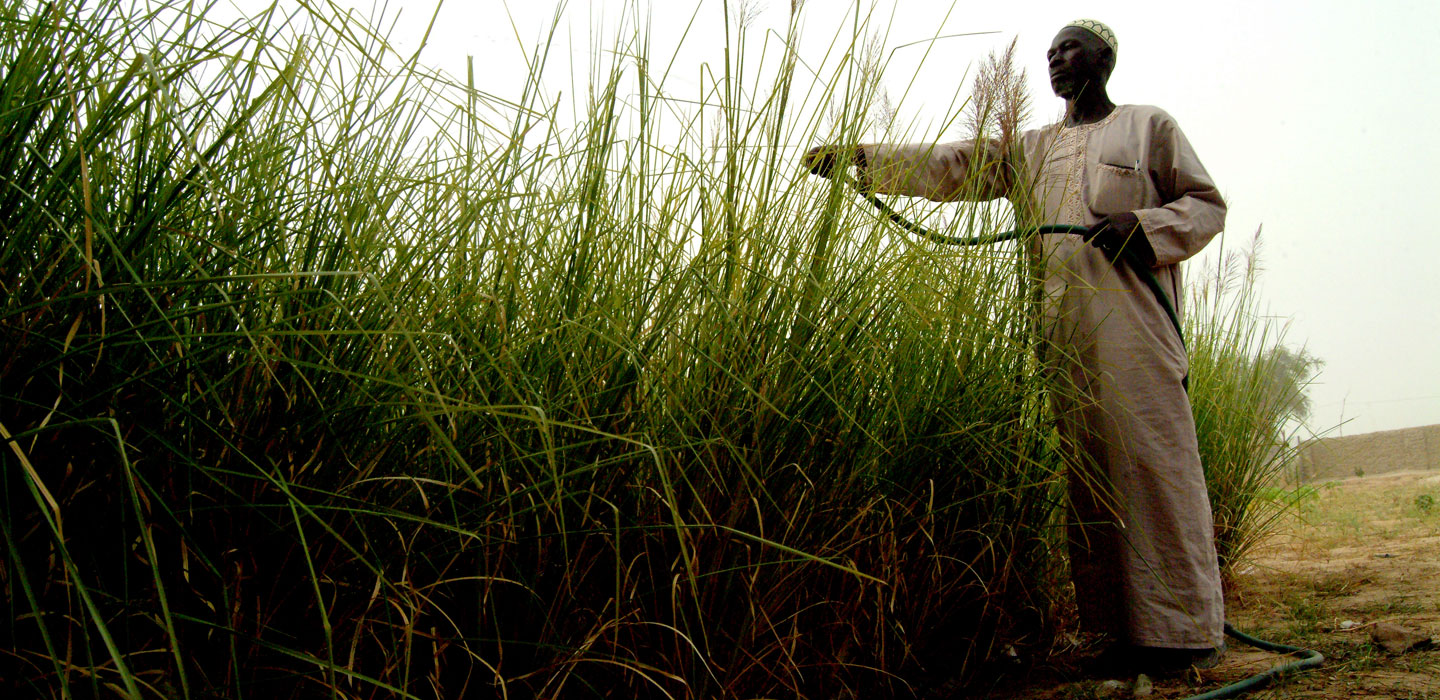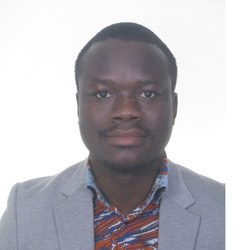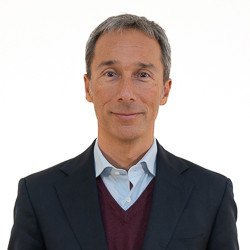Sahel
Sahel banner

Sahel
The Sahel
Facing the challenges of sustainable development in the Sahel
The Sahel, meaning “the shore” in Arabic, is a vast area crossing 6,000 kilometres from East to West Africa. It covers many geographic and agro-ecological systems, 12 countries and is home to 400 million people.
The political region of the Sahel, as defined by the United Nations strategy (UNISS), covers 10 countries (Senegal, Gambia, Mauritania, Guinea, Mali, Burkina Faso, Niger, Chad, Cameroon and Nigeria). The region faces many challenges. Climate change threatens to further degrade land, vegetation, water resources and food systems through increased incidence of drought, desertification and floods and projected shortening of the rainy season. The Sahel ecological zone has shifted from 50 to 200 kilometres southward over the last three decades, resulting in biodiversity and arable land losses.
The region suffers political instability which has weakened the livelihoods of households, threatens the sovereignty and stability of States and undermines social peace. The Covid-19 pandemic has also slowed down food production systems due to markets and borders closing. All these factors create challenges to the resilience of food systems.
Opportunities for growth
The population of the Sahel is projected to reach over 500 million in 2050. The region is also home to the youngest population in the world with 65 per cent under 25 years old. With the right support, this offers market growth opportunities for local producers.
Improved governance and cross-border cooperation between countries and local communities increases in the potential for progress and trade, taking advantage of the regions abundant human, cultural and natural resources.
Investing in the future
IFAD’s overall strategy in Sahel aligns with the UN Integrated Strategy for the Sahel to address the root causes of the Sahel crisis across 10 countries, with a special focus on women and youth.
IFAD is increasing its presence and support to the Sahel. We have 27 ongoing projects with US$2 billion investments across the 10 countries. The current portfolio is complemented by US$143 million of green resources to strengthen the resilience of small-scale farmers and producers to the impacts of climate change.
In 2020, IFAD joined the existing partnership framework between FAO, WFP and the G5 Sahel Secretariat to support the G5 Sahel Priority Investment Programme and developed the Sd3C programme to mitigate COVID-19, conflicts and climate change. We also started the IFAD and Green Climate Fund’s umbrella programme for the Great Green Wall Initiative that will identify transformational approaches to better support countries in implementing their national development plans and strategies to help restore land, soil, agricultural production, green cover, access to markets and nutrition.

Contacts
Asset Publisher

Related news
Related news
IFAD establishes a new Multi-Donor Funding Facility to support the Joint Sahel Programme
In a significant move to address the triple COVID, conflict and climate crisis in the Sahel, IFAD has established a Multi-Donor Funding Facility (MDFF) which will channel funding to the existing Joint Sahel Programme in Response to the Challenges of COVID-19, Conflict and Climate Change (SD3C).
IFAD and partners to build resilience of smallholder farmers to climate change impacts in seven Sahelian Countries
Today, IFAD launched the Africa Integrated Climate Risk Management Programme (AICRM): Strengthening Smallholder Farmers' Resilience to Climate Change Impacts, with a workshop in Banjul, The Gambia. Dr Jyotsna Puri, Associate Vice-President of the Strategy and Knowledge Department at IFAD joined over 60 participants, including government representatives from the programme's host countries, as well as financial and implementing partners.
Two IFAD Associate Vice-Presidents on official visit to Senegal and The Gambia
Two Associate Vice-Presidents from IFAD - Donal Brown of the Programme Management Department and Jyotsna Puri of the Strategy and Knowledge Department – are conducting an official visit to Senegal and The Gambia from 13 to 16 June 2022 to meet with country authorities and beneficiaries of IFAD-supported programmes in the two countries, as well as the SAHEL regional programme.
Related Stories
Related Stories
The thin green line that’s holding back the Sahara desert
The Great Green Wall was envisioned as a line of trees stretching across Africa to protect against desertification. Today, it is a mosaic of farms, forests, and wilderness, where sustainable agriculture is the norm and rural-dwellers thrive.
To “green” the Sahel, we need big plans and small actions
The best way to make the desert bloom is to dig a hole. Not a well, but a shallow pit in the sandy soil about as wide as the length of your forearm. Then add some dung, plant your seeds, and wait for the rains.
How increased access to water shortens the path towards sustainable development in the Sahel
Every day Dienaba Sow travels 3.5 kilometres from her home in Hodio village towards Toung, in Senegal's Louga region, to collect water for her family's daily needs.
Blogs
Blogs
Climate change talks cannot continue to ignore the needs of small-scale farmers
Poor rural people are among the hardest hit by climate change while contributing little to its causes. They deserve a fair share of climate finance to improve their resilience, and a seat at the table for the global climate talks.
Why small farms are key to the future of food - and how we can support them
In the 25 years since Clayton Christensen coined the term “disruptive innovation,” much has been written about the benefits of shaking up established business practices.
Meeting the challenge of SDG2: The moment for action
We are just over 10 years out from the deadline to the meet the SDGs, but the goals will require a step change in the quantity and quality of financing made available.

